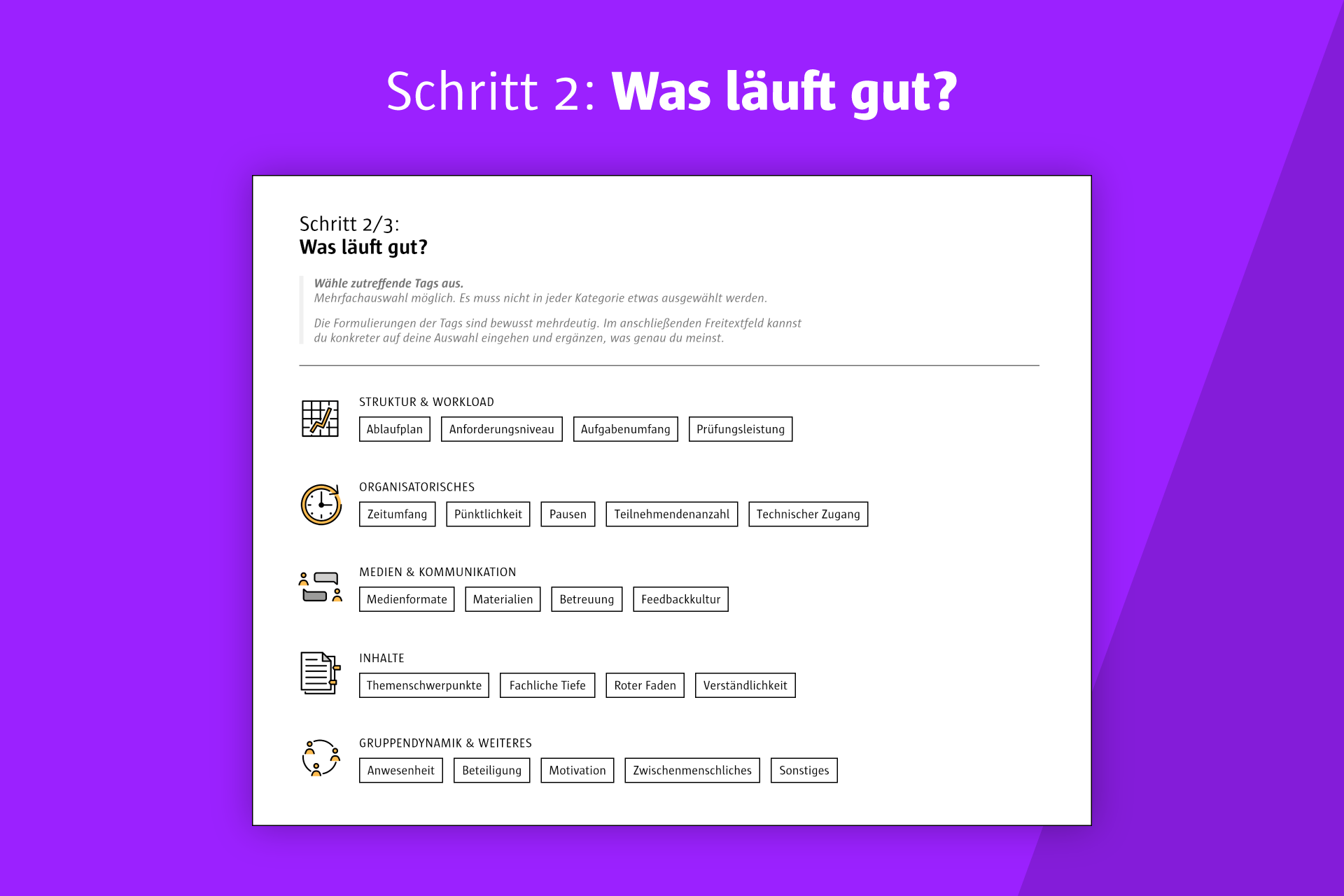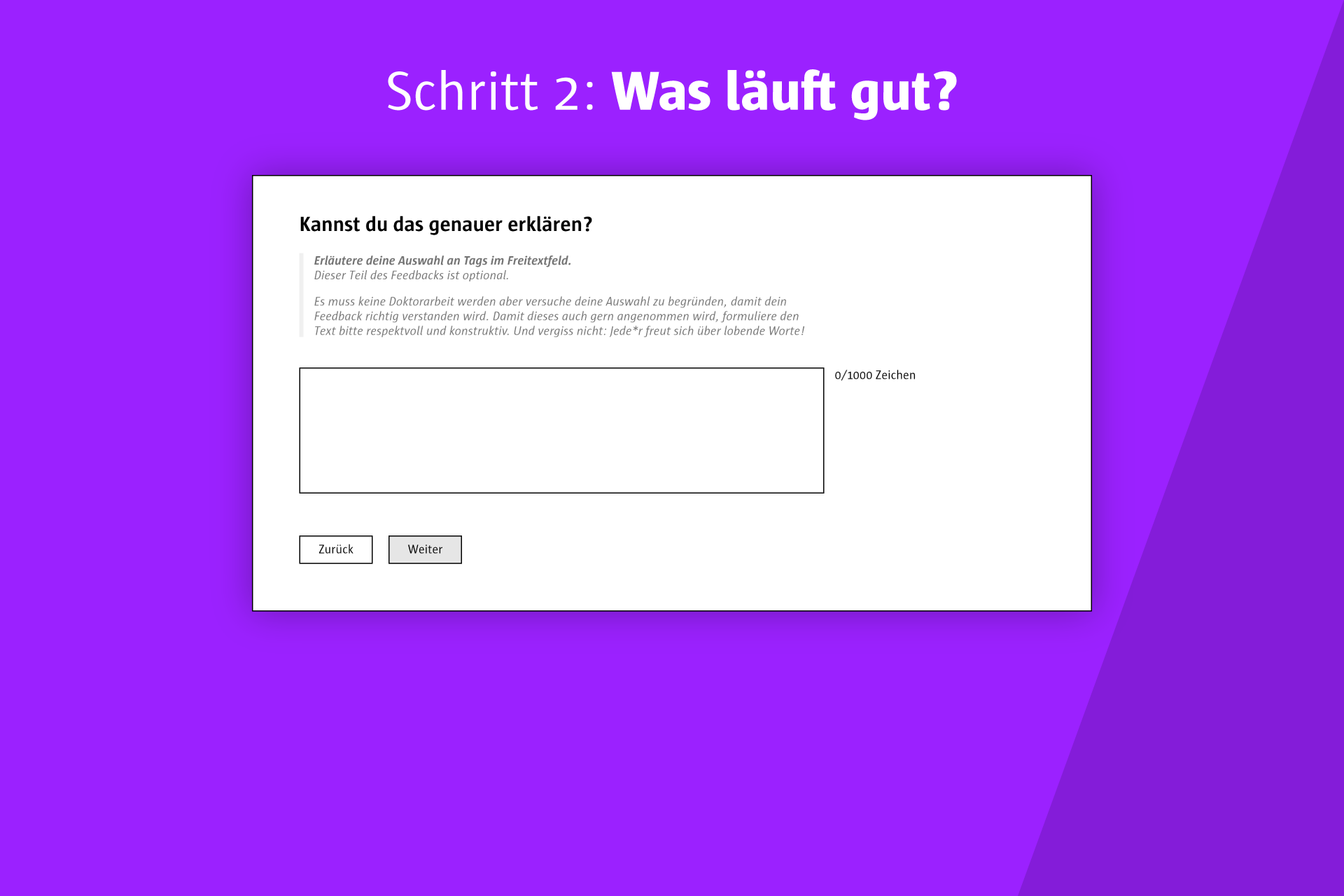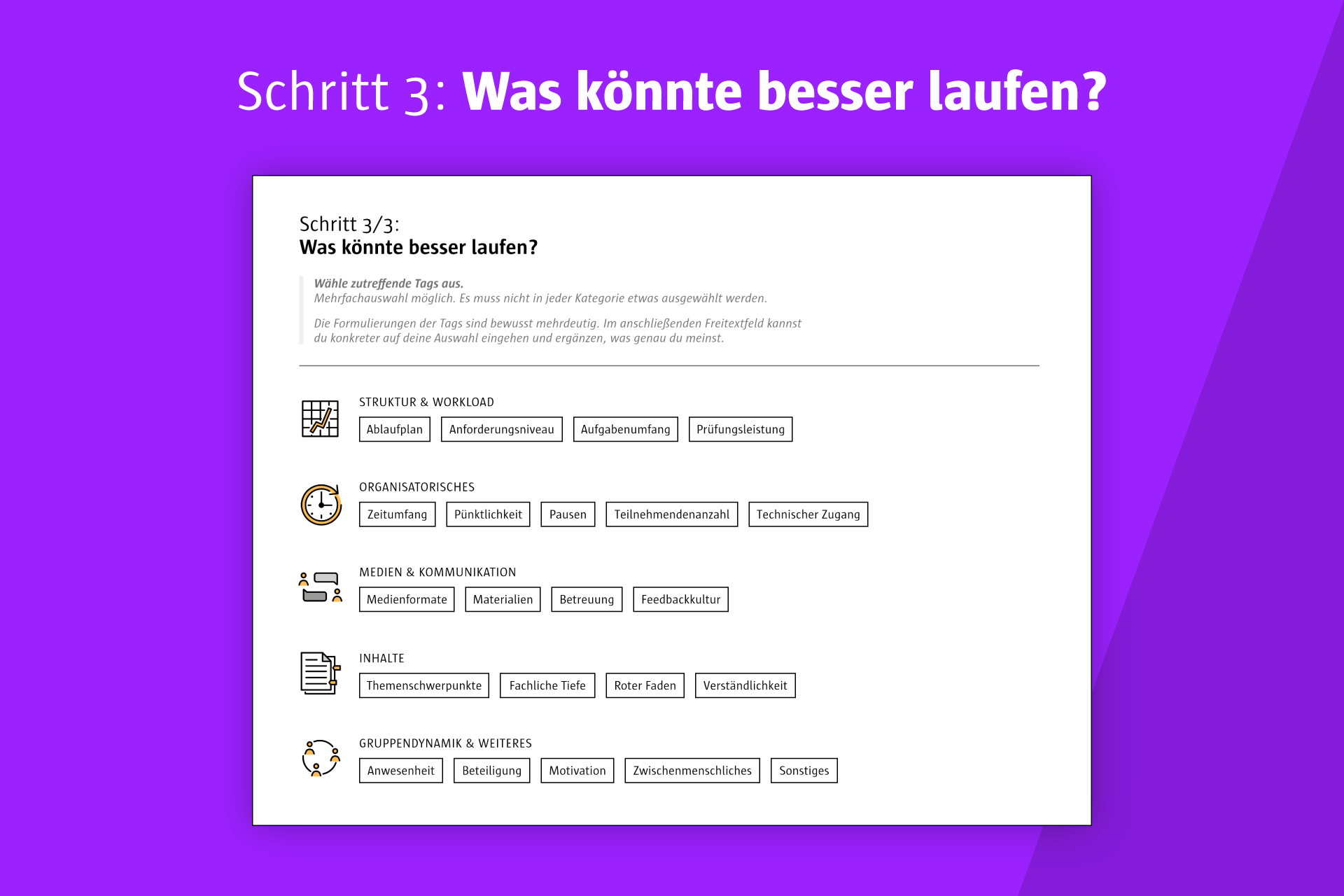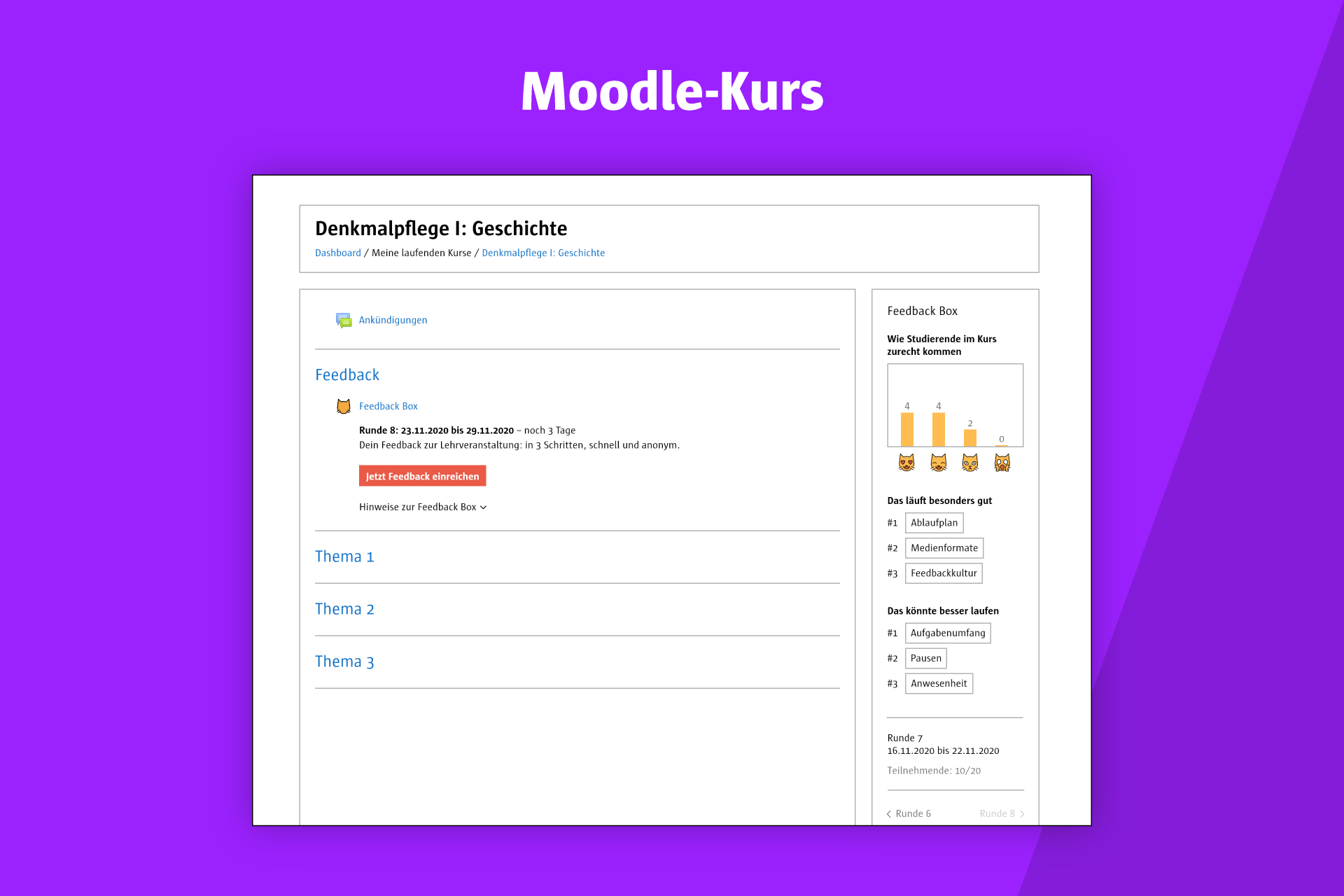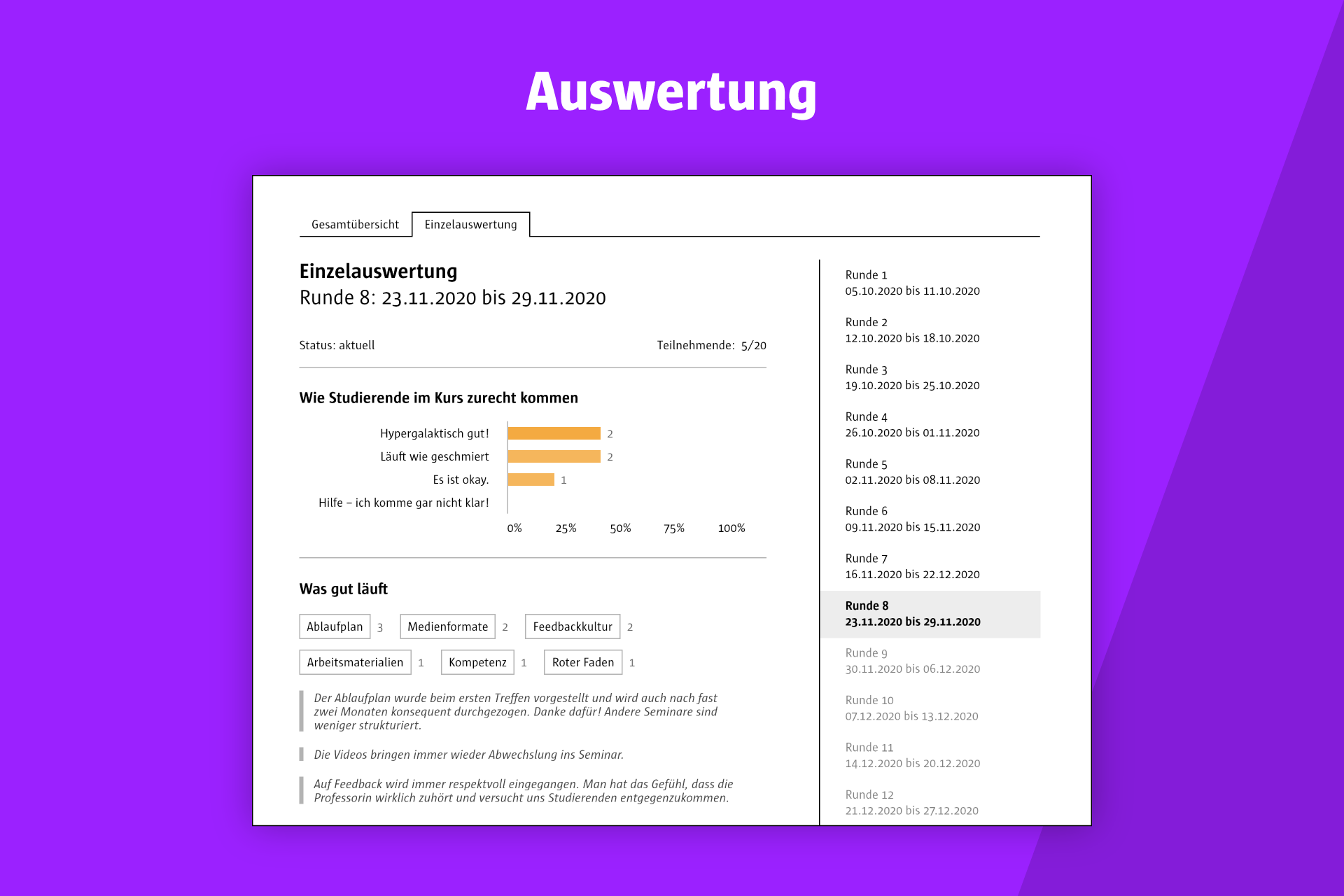How do the students feel about a university seminar? What is going well, what could be better? Especially in digital courses, teachers often don’t know how the course participants are really doing; at the same time, students often don’t have the courage or even the chance to give feedback. With the Moodle plug-in “Feedback Box”, students can anonymously indicate how they are doing in just a few steps. Fellow students and teachers can then see at a glance what the mood is like in the course.
The project is a result of the Brandenburg 2020 University Hackathon and is funded by the Brandenburg Ministry of Science, Research and Culture. The plugin was developed by a project team of the University of Applied Sciences Potsdam and the BTU Cottbus-Senftenberg and was released in January 2021.
Design process
The project was conceived during the Brandenburg University Hackathon 2020. A group of students developed a prototype for the challenge “How can students signal how high the workload in a seminar is?”. Their idea: a plug-in for students to give feedback on their seminars.
Three students and a mentor developed the concept for the feedback tool over three days. In the design phase, ideas were collected, discussed and similar concepts were analysed. The group’s goal was to develop a simple tool that could be integrated into online courses via the Moodle learning platform. The target group of the feedback tool is both teachers and students who are in the digital teaching phase. Students can use emojis to express their mood in the feedback tool and then add free text.
Subsequently, the project was funded by the Ministry of Science, Research and Culture of the State of Brandenburg. A project team from the UAS Potsdam and the BTU Cottbus-Senftenberg further developed the Moodle plug-in in a process that lasted several months. Through two surveys with teachers, students and Moodle experts, the design was optimised and revised in several iterations. The plugin was developed in cooperation with a software company was released in early 2021.
Source: University of Applied Sciences Potsdam project website


